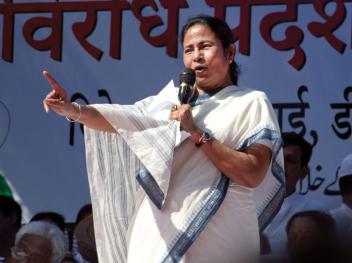The proposal to change name will be sent to centre after it gets a go-ahead by the West Bengal assembly
GN Bureau | August 3, 2016

The President of India, Droupadi Murmu, addressed Members of both Houses of Parliament in the Central Hall of Samvidhan Sadan on Wednesday, as the nation celebrated the 11th Samvidhan Divas with great fervour and enthusiasm. Vice-President of India and Chairman, Rajya Sabha, C. P. Radhakrishnan also addres
Marking a momentous occasion in the nation’s socio-cultural and spiritual landscape, PM Narendra Modi ceremonially hoisted a saffron flag on the Shikhar of the sacred Shri Ram Janmbhoomi Temple in Ayodhya, Uttar Pradesh on Tuesday. The Dhwajarohan Utsav symbolises the completion
Animal welfare requires as much a structured policy approach as do other sectors in India. Conflict that exists today is due to lack of an integrated policy approach which in turn exacerbates the conflict and instigates public health crises. The Indian Constitution already recognises the importance of anim
In this era of AI and classrooms filled with students glued to their cellphones, there is a need to focus on redirecting, but not eliminating, the distraction. While there is no doubt that we need to go back to the older ways of teaching such as taking oral viva exams, practicing ‘sthithprajana&rsquo
Four Labour Codes - the Code on Wages, 2019, the Industrial Relations Code, 2020, the Code on Social Security, 2020 and the Occupational Safety, Health and Working Conditions Code, 2020 have come into effect , rationalising 29 existing labour laws. By modernising labour regulations, enhancing workers` welf
In the world of science fiction, the cyborg, a hybrid of human and machine, often evokes fascination and fear. However, American scholar Donna Haraway conceptualises cyborg as more than a futuristic body; it is a philosophical lens, a way of thinking about identity, agency, and responsibility in a world wh

